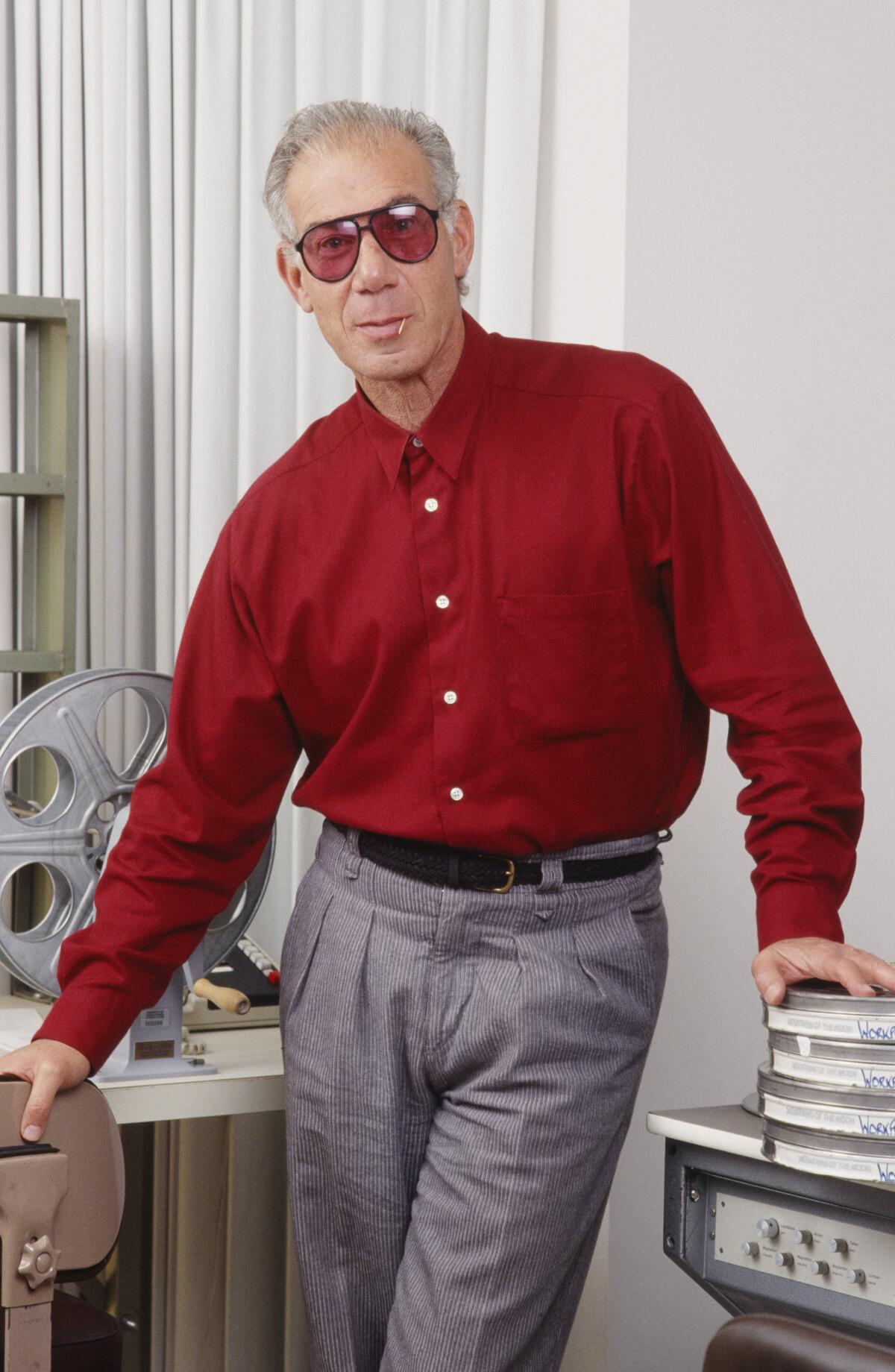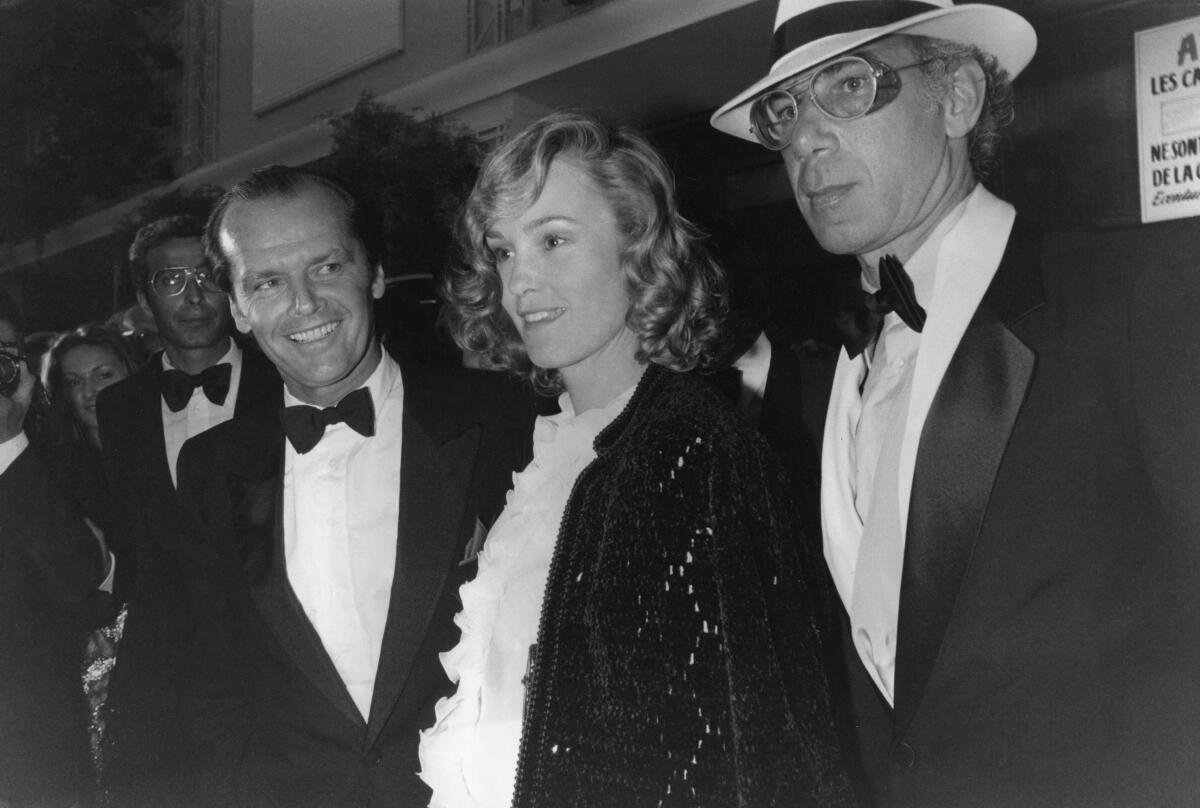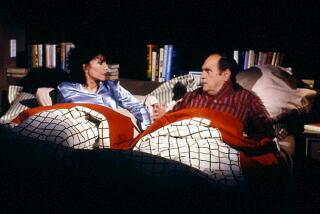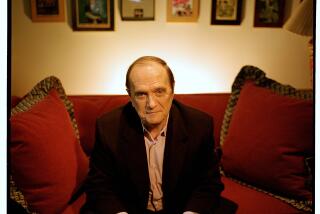Rebel director Bob Rafelson dies at 89: ‘He never wanted to be part of the crowd’

- Share via
Bob Rafelson, a defiant director, writer and TV producer with a reputation for making a scene in Hollywood, died Saturday at age 89 in Aspen, Colo. His wife, Gabrielle Taurek, confirmed his death to the Los Angeles Times on Sunday.
Rafelson was best known for directing the Oscar-nominated film “Five Easy Pieces” and co-producing the popular “Monkees” TV series starring the band of the same name. Throughout his decades-long career, Rafelson often clashed with the Hollywood establishment while making innovative projects.
“He liked to push the boundaries in every area of his life,” Taurek told The Times. “He didn’t have patience for the mundane, and ... he never liked to be told what to do ... When studios would insist he do something, he wanted to do the opposite.”
That rebellious spirit naturally manifested in his pictures, which tended to center on nonconformist underdogs intent on beating the system.
“He made films that mattered to him on a personal, emotional, intellectual level,” Taurek said. “He never wanted to do any kind of blockbuster movie. He never wanted to be part of the crowd.”
Having traveled from the bazaars of India to the forbidden Muslim city of Harer, Capt.
A true cinephile from a young age, Rafelson saw an average of four movies per day while growing up in Manhattan. But he didn’t pursue a career in the entertainment business until after he’d already been employed as a rodeo rider and a jazz musician.
Rafelson first caught the filmmaking bug abroad while serving in the U.S. Army. He worked at a radio station in Japan, where he translated Japanese movies into English.
“I always loved movies,” he told The Times in 1986, “but for many years, I repressed my ambition to be a director because I had this notion that you had to be a genius to direct movies. In order to overcome my fear of directing, it was necessary for me to learn quite a bit.”
Upon returning to the United States, Rafelson broke into the TV industry by story editing for producer David Susskind before producing projects for the small screen in his own right. By the late 1960s, Rafelson had relocated from New York City to Los Angeles, where he joined forces with Bert Schneider to co-executive produce “The Monkees.” Rafelson also directed and wrote scattered episodes of the musical sitcom, which aired for a couple of seasons on NBC.
In 1968, Rafelson reunited with the Monkees for his feature directorial debut, “Head,” a psychedelic fever dream starring band members Peter Tork, Davy Jones, Micky Dolenz and Michael Nesmith.
“I felt almost systematically rebellious for many years,” admits director Bob Rafelson, who was catapulted to the front ranks of Hollywood in the late ‘60s when his second film, “Five Easy Pieces,” struck a sympathetic chord with a nation swinging to the left.
“Head” was co-written by Rafelson and actor Jack Nicholson, who would go on to headline several of the filmmaker’s projects — including “Five Easy Pieces,” which was nominated for best picture at the 1971 Academy Awards. Nicholson also scored an individual Oscar nomination for his lead performance in the film as classical pianist-turned-drifter Bobby Dupea.
Nicholson later starred in Rafelson’s “The King of Marvin Gardens” (1972), “The Postman Always Rings Twice” (1981), “Man Trouble” (1992) and “Blood and Wine” (1996).
In the early 1980s, Rafelson suffered a major career setback when 20th Century Fox fired him from “Brubaker,” starring Robert Redford, for socking a studio executive in the jaw.
“The ‘Brubaker’ episode was the most painful experience of my life,” he told The Times in 1986.
“But apparently the Hollywood power structure has turned over enough times that my past misdeeds have been forgotten. That must be the case, because I’m making a film within the industry and four other studios have asked me to make films for them. And one must remember that even though I have a reputation for being difficult, my pictures have all made money.”

Rafelson returned to feature filmmaking a changed man years later, telling The Times he hadn’t quite “given up being cantankerous” but had come to the realization “that it’s not worth it to get upset over minor things.”
“If nothing else, I’ve learned that in order to survive, a director must always remember that the film industry is fickle and is in a state of constant ignorance, that his fate is being dictated by guesswork and that nobody endures forever,” he said in 1986.
“You will be subject to the whims of the public at all times — and so will the people who hire you.”
Other Rafelson titles include “Black Widow” and “Stay Hungry.” Despite his larger-than-life legacy, the visionary artist had fewer than 15 feature-film credits to his name as a director.
“I’ve been told I don’t make more movies because I’m not around, being talked about,” he told The Times in 1990.
“No one knows where I am. I do have certain misgivings about traveling so much. Let’s face it — I’m not prolific. But I’m not sure there’s such a great virtue in being busy all the time. I like being idle, idle in the sense that I can be curious and go off in different directions.”
Despite his maverick reputation, Bob Rafelson has survived by creating well-crafted movies.
When he wasn’t directing, Rafelson was a globetrotter who traveled to the Amazon, India, Kenya and beyond. A former student of anthropology, Rafelson “loved engaging with strangers and hearing their stories all around the world,” according to Taurek.
“Whenever we would roam the streets of foreign places ... he just attracted attention — and not because they knew who he was,” Taurek said. “He had that magnetism ... Whenever we walked down the block ... he would talk to somebody and suddenly we would find ourselves in someone’s home and they were serving a delicious meal.”
Rafelson also had a passion for hiking and moved with his family to Aspen in order to regularly scale the Rocky Mountains.
“He loved sitting on his porch, surrounded by his three sons, looking out on his view on the Castle Creek River,” Taurek said.
This article was originally on a blog post platform and may be missing photos, graphics or links.
Rafelson was previously married to Toby Carr Rafelson. He is survived by Taurek and his daughter-in-law, Karen, as well as his three sons: Peter, E.O. and Harper, who remembered him fondly in statements provided to The Times.
“Bob lived a full and passionate life impacting so many and changing the course of culture forever,” said Peter.
“My dad blessed me with a magical childhood full of adventure and curiosity,” said E.O. “He left me inspired to create from the soul, and explore as much as I can of this mysterious world.”
“As a teacher he gave me lessons to navigate the world,” said Harper, “as an explorer he taught me to always travel beyond boundaries and see the unseen, as a father he gave me the strength and knowledge to be passionate about what I believe in and pursue a dream.”
More to Read
The biggest entertainment stories
Get our big stories about Hollywood, film, television, music, arts, culture and more right in your inbox as soon as they publish.
You may occasionally receive promotional content from the Los Angeles Times.











